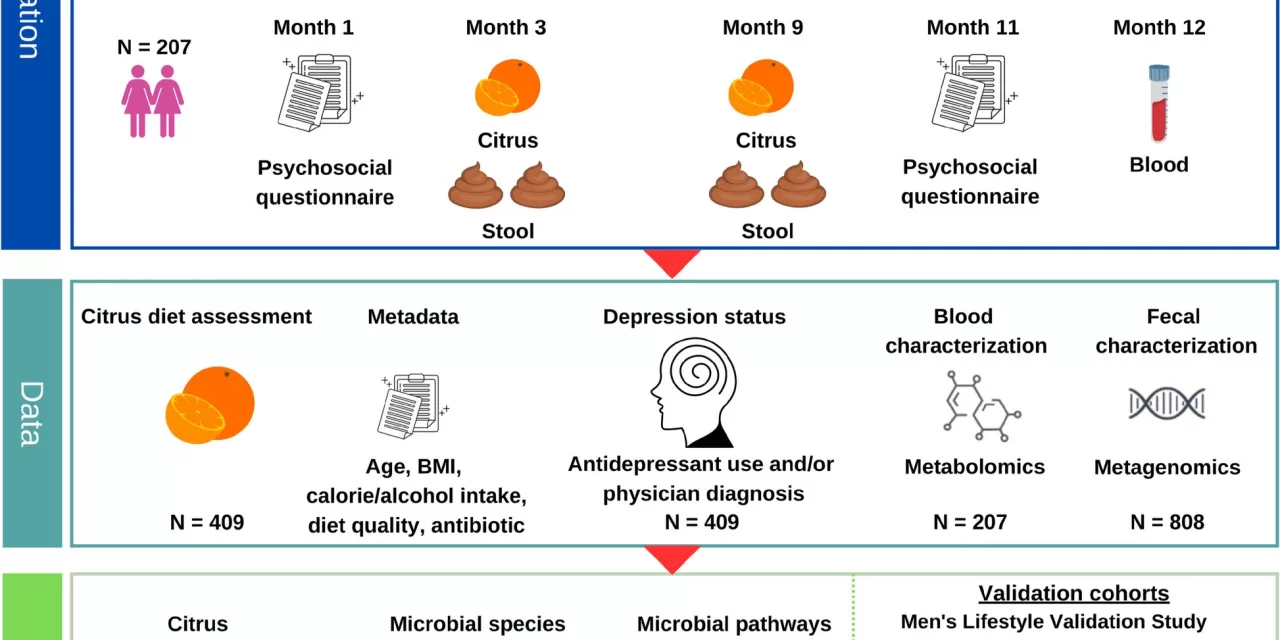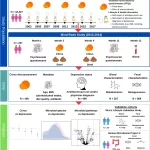Eating an orange a day could lower a person’s risk of developing depression by 20%, according to a new study published in Microbiome. The research suggests that citrus fruits may play a role in improving mental health by promoting the growth of Faecalibacterium prausnitzii (F. prausnitzii), a beneficial gut bacterium linked to mood-enhancing neurotransmitters serotonin and dopamine.
Groundbreaking Research at Harvard
The study was led by Raaj Mehta, an instructor in medicine at Harvard Medical School and a physician at Massachusetts General Hospital. Using data from the Nurses’ Health Study II (NHS2), which has tracked over 100,000 women since 1989, researchers examined the relationship between citrus consumption and depression risk.
“We found that eating one medium orange a day may lower the risk of developing depression by about 20%,” Mehta explained. “Interestingly, this effect appears specific to citrus—other fruits, like apples or bananas, did not show the same impact.”
The research team also analyzed stool samples from participants and found that individuals who consumed more citrus had higher levels of F. prausnitzii. This bacterium, previously known for its role in reducing inflammation and promoting gut health, may influence mental well-being by affecting neurotransmitter production.
How Does Citrus Affect Mental Health?
The key to citrus’ potential antidepressant effects may lie in its interaction with F. prausnitzii. Researchers believe this bacterium plays a role in the S-adenosyl-L-methionine cycle, which helps regulate serotonin and dopamine production. These neurotransmitters are crucial for mood regulation and have been linked to conditions like depression and anxiety.
To validate their findings, the researchers also examined data from the Men’s Lifestyle Validation Study. Results showed a similar trend—higher levels of F. prausnitzii were associated with a lower risk of depression.
“I wasn’t aware of a link between citrus and mental health before this study,” Mehta admitted. “We often talk about fish as ‘brain food,’ but perhaps we should start considering oranges in the same category.”
What’s Next?
Mehta and his team hope their findings will lead to clinical trials that explore the potential of citrus as a dietary intervention for depression. While the study establishes a promising link between citrus intake and mental health, more research is needed to determine if citrus consumption can be an effective treatment for those already diagnosed with depression.
“There is a huge unmet need for depression treatments,” Mehta said. “If something as simple as eating an orange a day can help, it would be a low-risk, high-reward strategy for improving mental health.”
Disclaimer:
This study highlights a potential link between citrus consumption and reduced depression risk, but it does not replace professional medical advice. If you are experiencing symptoms of depression, please seek guidance from a healthcare professional. Further research, including clinical trials, is necessary to confirm these findings.










